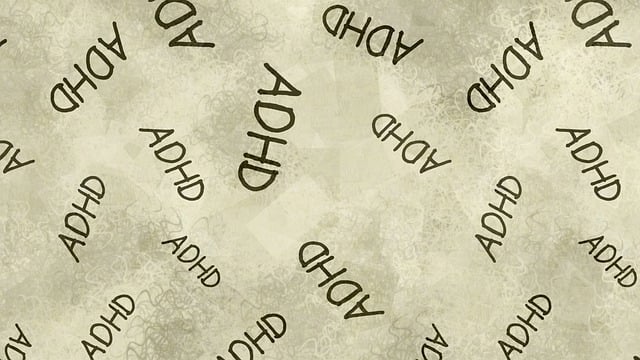Westminster EMDR Certified Therapy offers a specialized, effective approach to complex trauma treatment using evidence-based Eye Movement Desensitization and Reprocessing (EMDR). This tailored therapy integrates cultural sensitivity for diverse populations and is supported by complementary journaling exercises. Effective risk management in mental health requires a comprehensive plan addressing client vulnerabilities, staff training, protocol, and crisis management, as per Mental Health Policy Analysis and Advocacy best practices. Regular reviews and updates, encouraged by resources like mental wellness podcasts, ensure the plan remains current with research and guidelines. Tailored risk mitigation strategies build trust and safety, enhancing therapeutic outcomes through continuous learning and professional development.
Mental health professionals constantly navigate complex ethical and risk management challenges. This article explores crucial strategies for mitigating risks within mental health practice, emphasizing the significance of a robust risk management plan. We delve into understanding risk factors unique to this field, highlighting the value of Westminster EMDR Certified Therapy as an evidence-based approach. Through practical steps, it guides professionals in developing comprehensive plans, implementing effective risk mitigation strategies, and fostering a safe therapeutic environment.
- Understanding Risk in Mental Health Practice
- The Role of Westminster EMDR Certified Therapy
- Developing a Comprehensive Risk Management Plan
- Implementing and Reviewing Risk Mitigation Strategies
Understanding Risk in Mental Health Practice

In mental health practice, understanding risk goes beyond identifying potential hazards. It involves a nuanced awareness of the complex interplay between client vulnerability, therapeutic interventions, and systemic factors. Mental health professionals, including those certified in Westminster EMDR therapy, must recognize that every individual enters treatment with unique histories and current challenges that can either amplify or mitigate risks. For instance, while Trauma Support Services are invaluable for addressing past traumas, they also necessitate careful navigation to prevent retraumatization.
The goal of risk management planning is not to eliminate danger but to foster a safe and supportive environment. By integrating Compassion Cultivation Practices, healthcare providers can enhance their ability to connect with clients on a deeper level while maintaining professional boundaries. Moreover, implementing Burnout Prevention Strategies for Healthcare Providers is essential to ensure that therapists remain resilient and effective over the long term, thereby safeguarding both their well-being and the quality of care they provide.
The Role of Westminster EMDR Certified Therapy

Westminster EMDR Certified Therapy offers a unique and highly effective approach to treating complex trauma and its impact on mental wellness. EMDR (Eye Movement Desensitization and Reprocessing) is a evidence-based therapy that enables individuals to process traumatic memories and reduce their emotional intensity. This specialized treatment plays a pivotal role in the arsenal of mental health professionals, providing them with powerful tools to assist clients who have experienced distressing events. By integrating cultural sensitivity into EMDR practice, therapists can tailor their approach to diverse populations, ensuring effective care for all.
Incorporating Mental Wellness Journaling Exercises as part of the therapeutic process complements Westminster EMDR Certified Therapy. Journaling allows individuals to reflect on their experiences, track progress, and gain insights into their mental health journeys. This self-exploration is crucial in fostering cultural sensitivity within mental healthcare practice, as it enables therapists to understand individual perspectives, values, and beliefs, thereby enhancing the overall therapeutic experience.
Developing a Comprehensive Risk Management Plan

Developing a Comprehensive Risk Management Plan is an essential step for mental health professionals, especially those offering specialized treatments like Westminster EMDR Certified Therapy. This process involves identifying potential risks and hazards specific to the field of mental health and designing strategies to mitigate them effectively. A well-structured plan should encompass various aspects, such as client assessment, staff training, protocol establishment, and crisis management.
By integrating best practices from Mental Health Policy Analysis and Advocacy, communication strategies can be enhanced, ensuring a safe and supportive environment for both clients and practitioners. Regular reviews and updates are vital to keep pace with evolving research and guidelines, thereby enhancing the overall quality of care provided. Effective risk management planning equips professionals with the tools to navigate complex situations, fostering a culture of resilience within the mental health sector.
Implementing and Reviewing Risk Mitigation Strategies

Implementing risk mitigation strategies is a cornerstone of effective risk management planning for mental health professionals. At its core, this involves tailoring approaches that address specific client needs and vulnerabilities, enhancing safety and fostering trust. For instance, professionals certified in techniques like Westminster EMDR Therapy can leverage their expertise to mitigate risks associated with trauma and emotional distress, boosting client confidence during therapy. Regularly reviewing these strategies is equally crucial; dynamic therapeutic environments demand adaptive responses as client conditions evolve.
A robust risk management plan encourages continuous learning and improvement. Mental wellness podcasts, as part of a broader Mental Wellness Podcast Series Production, can serve as valuable resources for professionals to stay informed about emerging research and best practices in risk mitigation. By integrating these insights into their clinical approaches, practitioners not only enhance their own Confidence Boosting capabilities but also contribute to the overall effectiveness of risk management planning for mental health professionals.
Mental health professionals face unique challenges that require robust risk management strategies. By understanding the diverse risks inherent in their practice, such as client confidentiality breaches and ethical dilemmas, therapists can proactively implement measures like those offered by Westminster EMDR Certified Therapy. A comprehensive risk management plan, combined with regular review and strategic mitigation, ensures a safe and effective therapeutic environment for both practitioners and clients. This proactive approach not only protects sensitive information but also enhances the overall quality of mental health services provided.














